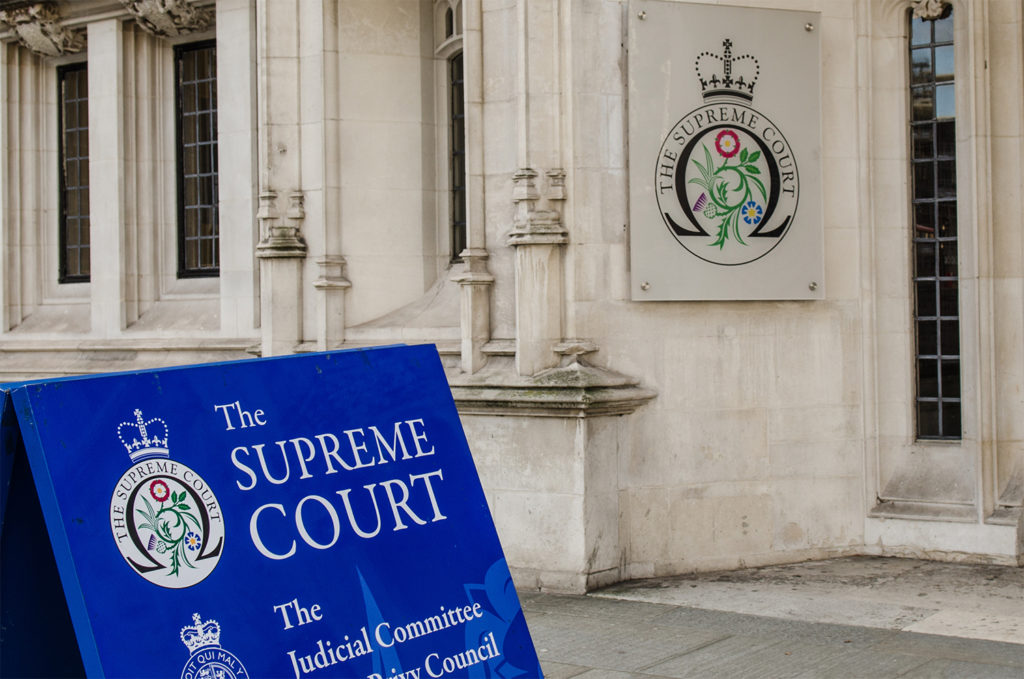The outcome of 6 insurer’s appeals against the High Court’s ruling in the FCA’s Covid-related business interruption test case has been received today. Pleasingly for business owners, the Supreme Court has dismissed the challenge and backed the original verdict. The judgment represents the final outcome and there can be no further appeals.
The original decision came in mid-September. The case examined 21 policy wordings across eight insurers, as well as 700 types of policies across another 60 different insurers with up to 370,000 policyholders affected. The regulator estimates that the case could result in £1.2bn in claims payouts. Those numbers give an indication as to the significance of the hearing for the UK business economy. We very much hope that thousands of jobs and livelihoods have been saved as a result of the ruling.
The executive director of consumers and competition at the FCA, Sheldon Mills commented: “Coronavirus is causing substantial loss and distress to businesses and many are under immense financial strain to stay afloat. This test case involved complex legal issues. Our aim throughout this test case has been to get clarity for as wide a range of parties as possible, as quickly as possible.”
The original outcome was a mixed result for both insurers and policyholders. The Association of British Insurers claimed partial victory but most observers felt that the High Court had ruled in favour of policyholders on the majority of issues. The view that policyholders got the better of it is probably supported by the fact that 6 insurers; Arch, Argenta, Hiscox, MS Amlin, QBE and RSA lodged an appeal against the verdict. Only Ecclesiastical and Zurich opted out of further legal proceedings.
The business community is understandably feeling let down by the insurance industry’s response to the pandemic. Many are struggling to stay afloat, and the lengthy process is now into its 10th month. The decision to appeal only served to exacerbate the negative effect on the insurance industry’s reputation.
RSA estimated that the judgment will see them incur an additional £104m in BI-related Covid-19 claims. Hiscox set the figure at around $48m and QBE £54.3m. When you learn of the sums involved you can understand a little more why insurer’s have been prepared to contest the issue. But what price a reputation?
The case analysed numerous clauses but the majority of the argument centred around 2 issues:
- Firstly whether disease wordings provide cover for losses resulting from BI due to a notifiable disease occurring within a specific radius of the insured premises.
- Secondly, prevention of access otherwise known as public authority wordings. These provide cover for prevention of access to premises due to restrictions imposed by an authority caused by an emergency likely to endanger life in a specified area.
While the ruling is positive news for companies, a note of caution must be added. Not all claim applications will necessarily be successful despite the ruling. Businesses must still demonstrate the losses suffered were caused by the pandemic and then furnish insurers with satisfactory evidence regarding the extent of their damages. The courts have at least made the burden of proof easier.
Struggling companies will also face other issues. Claim payouts are also unlikely to be received in the immediate future due to the complexity of approving the claim and the sheer number of businesses involved.
There is also concern that businesses making a claim will be penalised via price increases at renewal. That’s over and above the general price rises, experts are predicting insurers will introduce in order to meet the financial burden of Covid-19. That’s if insurers are willing to offer cover at all going forward.
Association of British Insurers Director General Huw Evans stated, “We recognise this has been a particularly difficult time for many small businesses and naturally regret the Covid-19 restrictions have led to disputes with some customers. We will continue to work together as an industry to ensure customers have the clarity they need when it comes to what they can expect from their business insurance policies.”
We’ve discussed previously how it’s likely that a Government initiative will be needed to facilitate pandemic related business interruption cover in the future. With the insurance market reeling from this episode, prices will either be unaffordable for firms or the cover too restrictive. SME’s involved in retail, events, hospitality etc could all potentially find significant exclusions inserted into new policy wordings. Therefore it’s likely the treasury will need to step in, in a similar manner to Flood Re or Pool Re following other significant catastrophic events.
As a business owner, you may be experiencing an inability to source BI cover. If you need to discuss your insurance arrangements in light of this case or have any other insurance-related query please don’t hesitate to get in touch with us.


